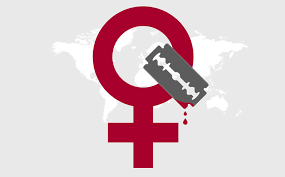46th Ordinary Session of the African Commission on Human and Peoples’ Rights, November 11th-25th 2009, Banjul, The Gambia
Statement by Institute for Human Rights and Development in Africa, Plan International, Save the Children Sweden, partners on strengthening cooperation between the African Commission on Human and Peoples’ Rights and the African Committee of Experts on the Rights and Welfare of the Child.
Institute for Human Rights and Development in Africa (IHRDA), Plan International and Save the Children Sweden, supported by child rights organisations in Africa congratulate the African Commission on Human and Peoples’ Rights for taking concrete steps to strengthen its collaboration with the African Committee of Experts on the Rights and Welfare of the Child.
Following calls by child-focused non-governmental organisations during the 44th and 45th Ordinary Sessions of the African Commission and the NGO Forums held prior to these sessions, IHRDA, Plan International, Save the Children Sweden and other child-focused NGOs welcome the adoption by the African Commission of its ‘Resolution on Cooperation Between the African Commission on Human and Peoples’ Rights and the African Committee of Experts on the Rights and Welfare of the Child in Africa’ at the end of the 45th Session in May 2009. Noteworthy is the fact that the Resolution designates the Special Rapporteur on the Rights of Women in Africa as the Commission’s Liaison with States Parties, the African Committee of Experts on the Rights and Welfare of the Child (being an inter-governmental organisation) and NGOs working on the rights of the child in Africa.
Children are increasingly subject to violations of their rights. Poverty continues to make children more vulnerable to social exclusion, discrimination, death by preventable diseases and lack of good quality education. Children are also among the primary victims of armed conflicts and are often inadequately catered for in rehabilitation activities.
These challenges can be overcome through the united and concerted efforts of all stakeholders (such as States Parties and civil society), under the leadership of the continent’s principal human rights mechanisms, the African Commission and the African Committee of Experts. Strong collaboration between the two bodies is therefore crucial to the respect, promotion, protection and fulfilment of children’s rights in Africa.
Closer collaboration between the African Commission and the African Committee will offer opportunities for cross-pollination of experiences. Concerted efforts in activities such as promotional visits, investigative missions, sensitisation campaigns among others can increase impact on States Parties and sensitise better national populations, as well as reduce costs for States Parties, the treaty-bodies and civil society.
Information-sharing on areas of concerns in the common mandate can reanimate the state-reporting system, facilitate more effective action by the protection mechanisms, including consideration of communications and stronger enforcement of recommendations and decisions. All this will lead to more coherence in the African Human Rights System, thus bringing closer to reality the enjoyment of the rights of the child in Africa.
The Resolution is a very positive development in realising this strong collaboration. IHRDA, Plan International, Save the Children Sweden, and other child-focused organisations in Africa call upon the African Commission to actualise the Resolution by adopting the following recommendations:
- Request the Special Rapporteur on the Rights of Women in Africa to participate actively in the Sessions of the African Committee of Experts on the Rights and Welfare of the Child;
- Undertake to invite the Committee to conduct joint missions where the issues concern children as well;
- Regularly refer issues concerning children that are brought before the Commission to the Committee.





